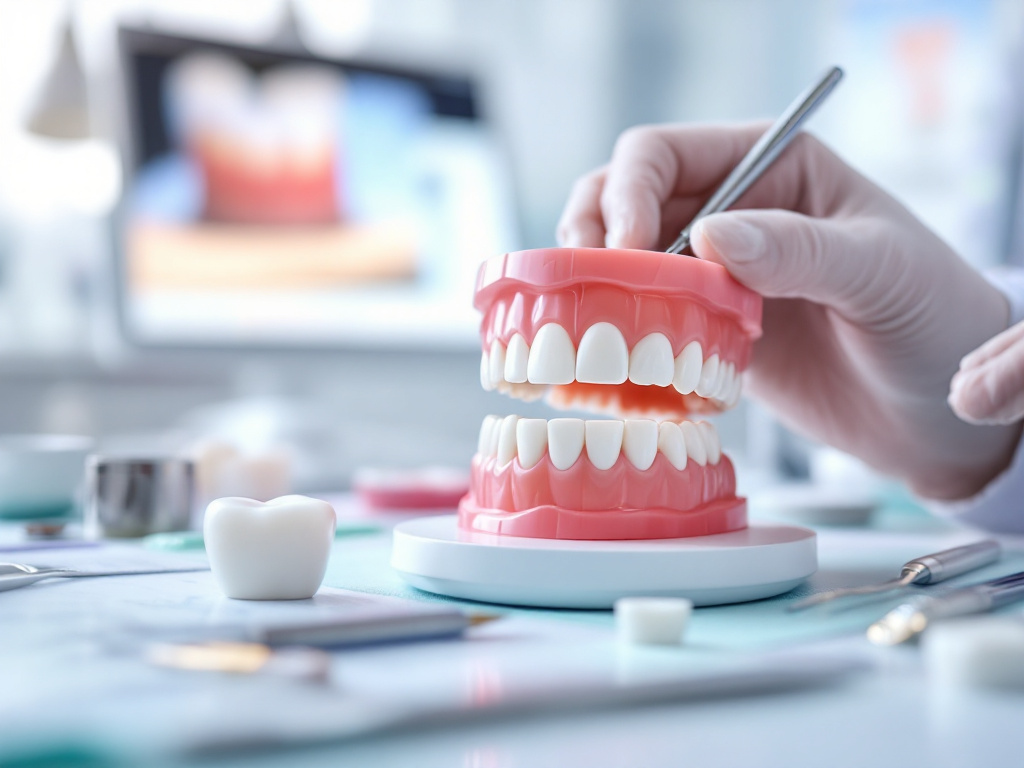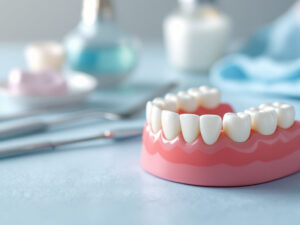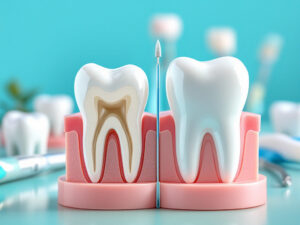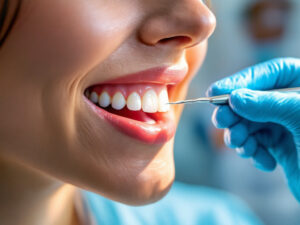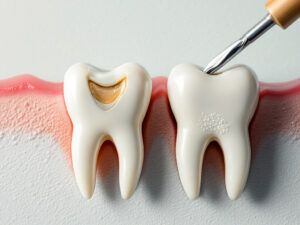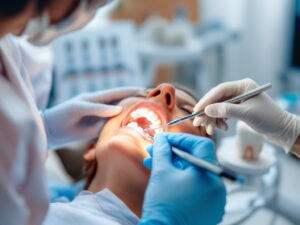Understanding dental prosthetics services
Dental prosthetics services cover a range of solutions designed to restore the function, appearance, and health of your smile after damage, decay, or tooth loss. When you explore restorative dental procedures, you’ll find that prosthetic devices—such as crowns, bridges, dentures, and implants—play a critical role in helping you chew, speak, and smile with confidence. By choosing the right dental prosthetics services, you protect your oral health and prevent issues like bone loss, shifting teeth, and an aged facial appearance.
In this guide, you’ll learn:
- What dental prosthetics are and how they work
- The main types of dental prosthetic devices
- How to compare options based on durability, cost, and care
- Tips for selecting a provider and maintaining your restorations
Types of dental prosthetic devices
Dental prosthetic devices replace missing or damaged teeth and restore your bite. Here are the most common options:
Crowns
A dental crown is a cap that fits over a damaged tooth to restore its shape, size, and strength. Crowns may be made of porcelain, metal, or a combination of materials. When you need to reinforce a cracked, chipped, or heavily filled tooth, a crown provides long-term protection. Learn more about dental crown placement or porcelain crown restoration.
Bridges
Bridges span the gap left by one or more missing teeth. They anchor to adjacent natural teeth or implants and feature one or more pontics (false teeth). A dental bridge replacement can restore your smile when you have several missing teeth in a row.
Dentures
Dentures are removable or fixed prosthetics designed for patients with multiple missing teeth. Options include:
- Complete dentures for full-arch replacement
- Partial dentures that clasp onto remaining teeth
- Implant-retained dentures anchored by dental implants
Custom solutions are available through our custom denture services.
Dental implants
A dental implant is a non-removable titanium post surgically embedded in your jawbone to replace a tooth root. It provides stable support for crowns, bridges, or dentures. Properly cared for implants can last 20 years or more, with some posts lasting a lifetime [1]. Explore implant restoration dentist for specialized care.
Veneers
Veneers are thin shells bonded to the front of teeth to improve shape, color, and symmetry. They’re ideal for cosmetic enhancements on discolored or chipped teeth. With proper maintenance, veneers can last 10 to 15 years [2].
Repair and restoration procedures
Your choice of procedure depends on the extent of damage and your oral health goals. Here’s how common restorative dental procedures fit into prosthetic care.
Fillings and inlays
For small cavities or minor decay, you’ll typically receive a filling. Composite resin fillings restore form and function with tooth-colored material. If the decay is more extensive but doesn’t require a full crown, an inlay or onlay can strengthen the tooth. Schedule with a tooth filling dentist.
Crowns and bridge services
When you have a cracked, chipped, or heavily worn tooth, a crown provides comprehensive coverage. Bridges replace multiple missing teeth by anchoring to crowns on adjacent teeth. Our bridge & crown services ensure a seamless fit and natural appearance.
Implant-supported restorations
If you have sufficient bone structure, dental implants offer the most durable support. After implant placement, your dentist will attach a crown, bridge, or denture to the post. This approach prevents bone loss [3] and delivers a stable, long-lasting solution. See restore missing tooth for more on implant options.
Root canal therapy
When decay reaches the tooth pulp, you may need a root canal therapy. After removing infected tissue, your dentist places a crown to protect the treated tooth.
Repairing cracks and chips
Minor cracks or chips can often be fixed with bonding or veneers. For more extensive damage, your dentist may recommend a crown. If you’ve experienced a fracture, consult a repair cracked tooth dentist or repair chipped tooth specialist.
Comparing prosthetic options
When you weigh prosthetic devices, consider durability, cost, maintenance, and how each option affects your oral health.
| Prosthetic type | Lifespan | Cost range (per unit) | Maintenance |
|---|---|---|---|
| Fillings | 5–7 years | $100–$300 | Regular hygiene |
| Crowns | 5–15 years | $800–$2,500 [4] | Avoid hard foods |
| Bridges | 5–15 years | $500–$1,200 per pontic [4] | Floss under bridge |
| Veneers | 10–15 years | $925–$2,500 per tooth [4] | Gentle brushing |
| Dentures (complete) | 5–10 years | $452–$6,514 [5] | Soak nightly |
| Implant-supported | 20+ years | $3,000–$7,000 per implant [6] | Regular check-ups |
Crowns vs implants
- Crowns cover damaged natural teeth but rely on existing structure
- Implants replace both root and crown, preserving bone and offering superior longevity
Bridges vs dentures
- Bridges are fixed, feel more natural, but require healthy adjacent teeth
- Dentures are removable, cost-effective for multiple missing teeth, but may need adhesives
Choosing the right provider
Selecting a skilled dental restoration clinic is essential to the success of your prosthetic treatment. Consider these factors when evaluating providers:
Qualifications and technology
- Ensure your dentist has advanced training in prosthetic design and placement
- Look for clinics that use guided implant systems (for example, the ASTRA TECH Implant System™ reduces risk by mapping implant placement precisely [3])
- Verify expertise in bone grafting and oral surgery, if needed
Service offerings
- Comprehensive restorative dental procedures under one roof
- Specialized services for repairing broken dental work [7]
- Cosmetic and functional solutions, such as tooth repair and restoration
Insurance and cost considerations
- Check whether your plan covers major restorative work through insurance covered restorative dental
- Inquire about financing or payment plans
- Compare itemized estimates for implants, crowns, and dentures
Maintaining your dental prosthetics
Proper care extends the life of your restorations and helps you avoid complications. Adopt these habits:
Daily oral hygiene
- Brush twice daily with a soft-bristled brush
- Floss or use interdental brushes to clean under bridges and around implants
- Rinse with an antibacterial mouthwash
Regular dental check-ups
- Schedule exams every six months to detect issues early
- Have your dentist inspect and adjust dentures or crowns as needed
- Professional cleanings remove plaque and tartar that can compromise prosthetics
What to watch for
- Signs of wear, such as cracks or rough edges
- Soreness under dentures or around implant sites
- Mobility in bridges or crowns
When you notice any changes, contact your dental restoration clinic to prevent more extensive repairs.
Next steps for your smile
By understanding your options and choosing the right provider, you’ll ensure that your dental prosthetics services deliver reliable, long-lasting results. Whether you need a simple filling or a complex implant-supported denture, a customized treatment plan will restore function, aesthetics, and confidence to your smile.
Talk with your dentist about the best restorative path for you—whether it’s a composite filling service, crown and bridge dentistry, or advanced implant restoration. With proper care and professional support, you can enjoy a healthy, functional smile for years to come.

